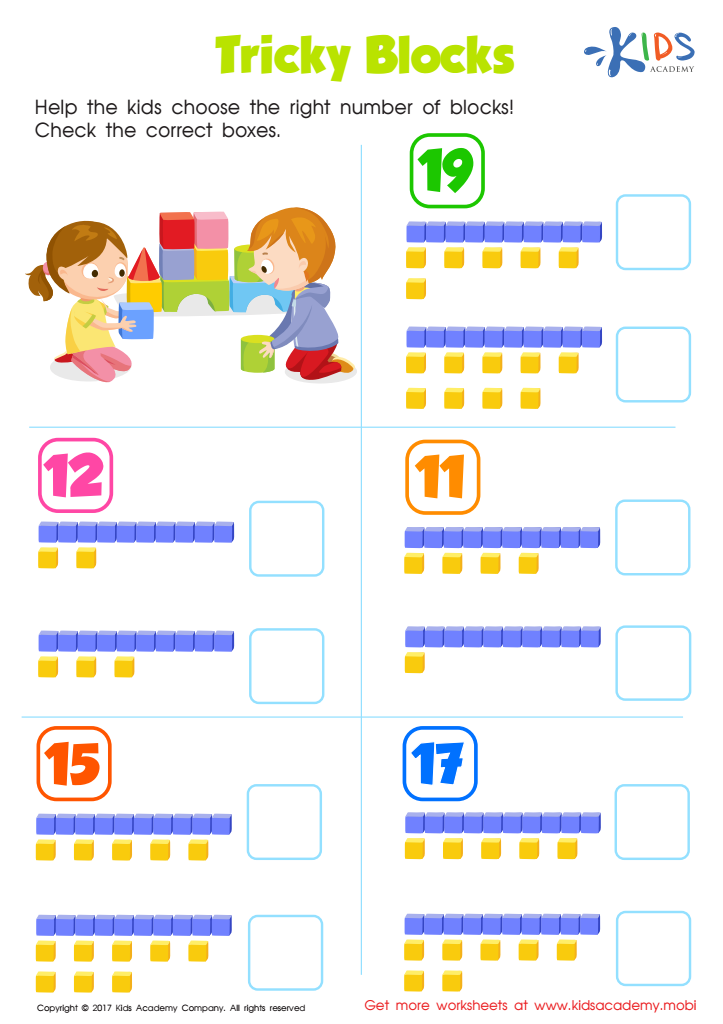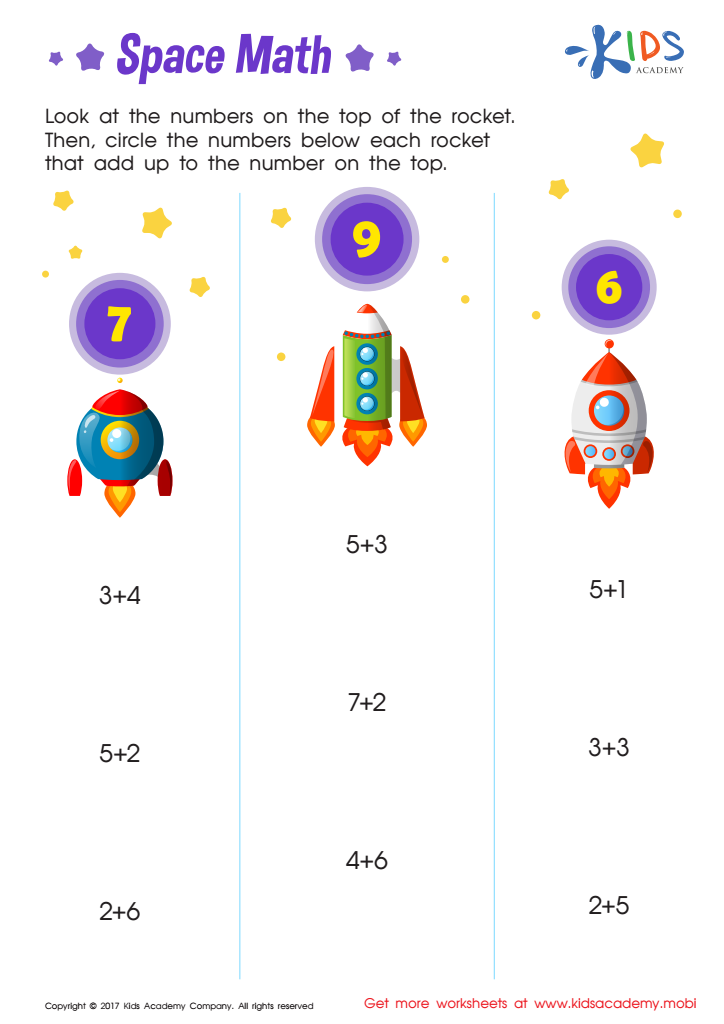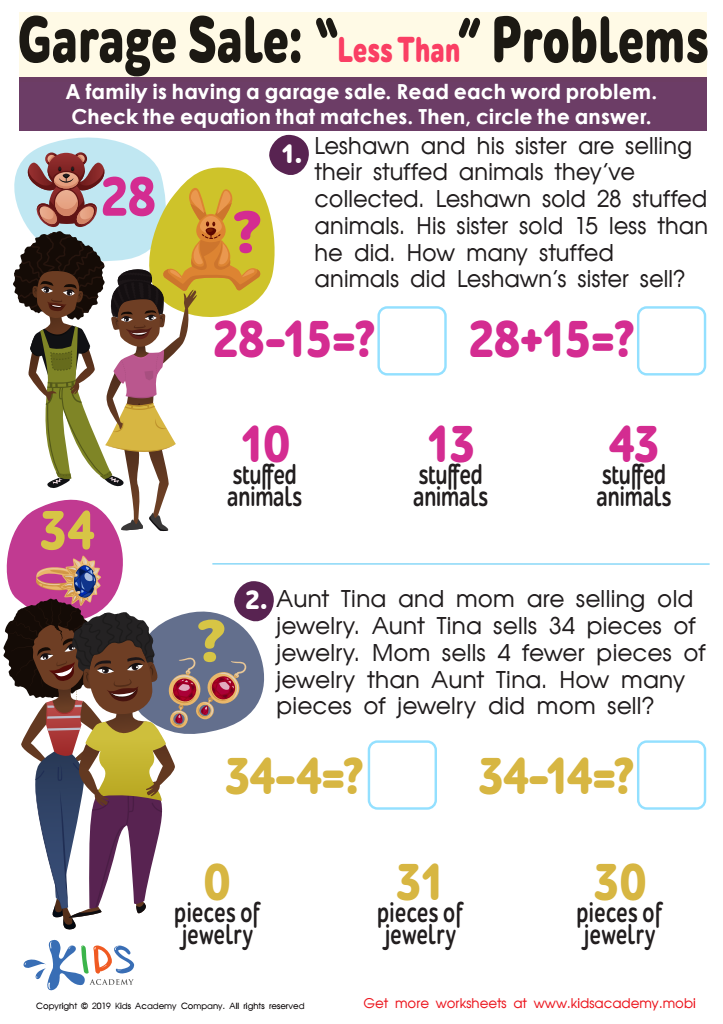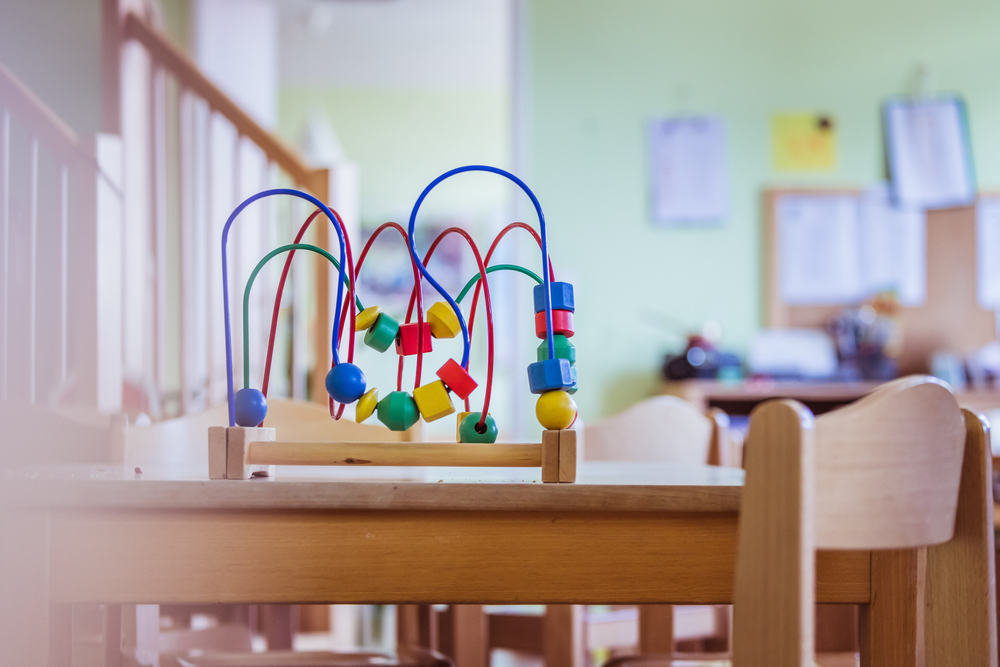Enhancing Counting Skills Normal Math Worksheets for Ages 4-5
3 filtered results
-
From - To
Enhance your child's counting abilities with our Normal Math Worksheets designed specifically for ages 4-5. These engaging worksheets offer a variety of fun and educational activities that encourage young learners to practice counting objects, recognizing numbers, and developing essential math skills. With vibrant visuals and interactive exercises, your little ones will enjoy exploring the world of numbers through playful learning. Perfect for homeschoolers and classroom use, these worksheets foster a strong foundation in math while keeping children motivated and excited about learning. Download today to ignite your child's passion for counting and strengthen their early math skills!


Tricky Blocks Worksheet


Addition: Space Math Worksheet


Garage Sale Less Than Worksheet
Enhancing counting skills in children ages 4-5 is crucial for their cognitive development and foundational learning in mathematics. At this age, children are highly receptive to new concepts, making it an ideal time to introduce counting. Mastery of counting not only lays the groundwork for future math skills but also enhances their overall academic performance.
When children engage in counting activities, they develop number sense, which is essential for understanding quantities, measuring, and problem-solving. Early counting skills are linked to later proficiency in addition, subtraction, and more complex math concepts. Moreover, counting activities promote critical thinking and improve fine motor skills through hands-on interactions with objects.
For parents and teachers, fostering counting skills can help create a positive learning environment where children feel confident in their abilities. Engaging in playful counting activities, such as counting objects during playtime or creating fun songs about numbers, can make learning more enjoyable.
Additionally, supporting counting skills can enhance communication and social interaction among peers, further enriching a child's learning experience. By prioritizing counting skills, parents and teachers can empower children with essential tools that promote lifelong learning and curiosity in mathematics.
 Assign to My Students
Assign to My Students
















